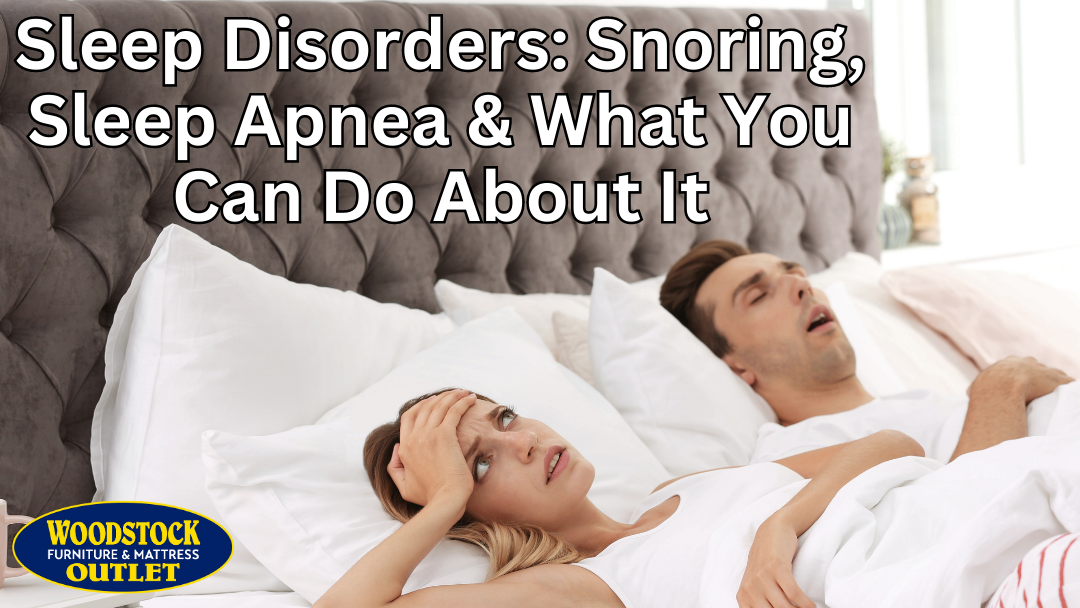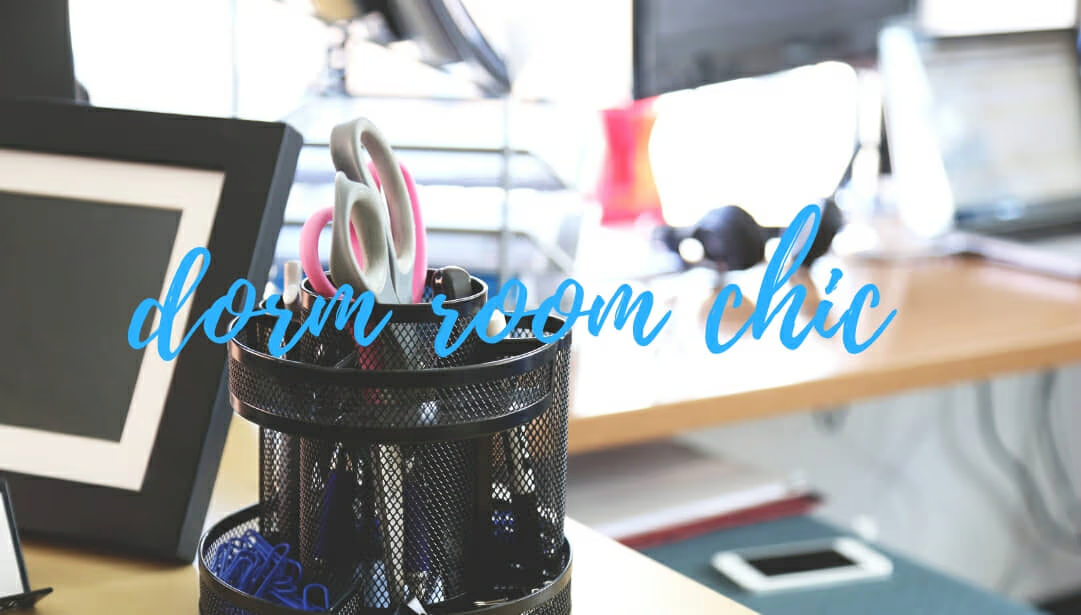Here at Woodstock Furniture & Mattress Outlet, we carry loads of mattresses, pillows and accessories. But we like to think that we’re in the business of selling sleep. Our job as mattress experts is to make sure that you are getting the rest that you need to function at your best.
Unfortunately, there are many sleep disorders that can get in the way of you and your best sleep. What do you think is the #1 sleep disorder our shoppers ask us for help with? Did you guess snoring and sleep apnea? If so, you’re right on target!
Every single day, mattress shoppers ask questions about snoring, sleep apnea, and if we can recommend anything to help. If you’ve got questions like this, you’re in the right place. Read on as we answer our customers’ FAQs on snoring and sleep apnea, and offer our advice on things you can do to mitigate these common, but incredibly disruptive sleep issues.
But First, Our Snoring & Sleep Apnea FAQ
Below are a few of the most common questions we see from mattress shoppers in our stores and online regarding snoring and sleep apnea.
What Is Sleep Apnea? What Causes Snoring / Sleep Apnea?
Let’s start with why many of us snore. While there are several causes, nearly all involve some kind of obstruction or narrowing of the airway in your nose, sinuses, mouth or throat. Most commonly, these obstructions are due to a deviated septum within the nose /sinuses, enlarged tonsils or adenoids in the throat, or an enlarged tongue in the mouth, although other reasons do exist. As we sleep, the air we inhale requires more pressure than usual to pass through these narrowed or obstructed airways on its way to the lungs. This increased pressure vibrates the soft tissues of the nose, throat and mouth to create the disruptive and annoying sound we call “snoring”.

When caused by the factors above, the severity of snoring often increases due to the relaxation of the muscles in the mouth and throat (known as the soft palate). Especially when the snorer sleeps on their back. That’s because as the jaw, tongue and soft palate relax during sleep, and under the force of gravity, these soft tissues can collapse your airway.
Okay, but what is sleep apnea exactly? Is it different from snoring? Yes! Obstructive sleep apnea (OSA) is when the obstruction, blockage or collapse of the airway is sufficiently severe that the sleeper actually holds their breath and momentarily stops breathing in their sleep. This pause in breathing is known as “apnea”.
[Editor’s Note: Another form of sleep apnea is known as central sleep apnea (CSA). It is far less common and results from a miscommunication between the nervous system and the muscles that control breathing. CSA is often related to other underlying medical conditions, and doesn’t always cause snoring. For today’s article, we’re focusing on snoring and obstructive sleep apnea.]
What Is the Difference Between Snoring & Sleep Apnea?
As we explained above, snoring is a symptom, while sleep apnea is a diagnosable condition. However, since snoring is indeed a key symptom of sleep apnea, there’s always been some confusion about the difference between the two.
Think of it this way, every person suffering from obstructive sleep apnea snores, but not every person who snores has sleep apnea. The key difference between snoring and sleep apnea is simply that sleep apnea refers specifically to the cessation of breathing during sleep.
What Are Sleep Apnea Symptoms? Is Sleep Apnea Dangerous?
The primary symptom that everyone notices is the loud snoring. However, aside from the snoring and pause in breathing, are there other symptoms to look out for? Absolutely! There are a ton of other symptoms and potential risks involved with untreated sleep apnea. In addition to the obvious, sleep apnea can cause absolutely devastating insomnia.
Typically, people associate insomnia with the inability to fall asleep, but in this case, insomnia refers to the inability to stay asleep or get quality sleep due to constant disruption. Recall our past article on the sleep cycle, where we emphasized how important the deeper phases of sleep are for getting good rest. Imagine that every single time your body reached a deeper stage of sleep and relaxation, someone abruptly woke you up. Would that make you irritable, anxious, and exhausted? Of course!

Well, this happens to untold millions of people suffering with sleep apnea – but most don’t even know it! As a result, sleep apnea causes a host of problems that may look unrelated to the untrained eye. The resulting sleep deprivation and chronic exhaustion can lead to increased stress levels that can put you at increased risk for excessive sleepiness during the day, depression, anxiety, mood swings, irritability, mental fogginess, headaches, diabetes, and weight gain due to increases in cortisol, among other things.
However, the greatest danger of sleep apnea is that it can put a ton of extra strain on the heart and cardiovascular system. While there’s little risk of suffocation during a sleep apnea episode, the cumulative effects of untreated sleep apnea over the course of years can cause significant increases in risk for heart disease, coronary artery disease, high blood pressure, heart attacks, irregularities in heartbeat, strokes, and more.
How To Stop Snoring? How To Treat Sleep Apnea?
Everything we discussed above doesn’t even get into the relational cost of snoring and sleep apnea. Most often, those asking us for help with snoring or sleep apnea are actually the bedmates of the snorers. If your spouse snores like a freight train, you’re probably begging for some good news. “Please, tell me that there’s hope for some kind of relief to snoring or sleep apnea — for both of our sakes!”

Just as snoring can vary in severity, sleep apnea can also range from a severe, chronic, debilitating condition, to something mild and occasional. The good news is that there are indeed solutions for both snoring and sleep apnea, but the recommended treatment usually depends on the severity of the symptoms.
For snoring without sleep apnea, there are a number of over-the-counter or non-medical solutions available. These include everything from simple nasal strips, to anti-snoring mouthpieces (also known as MADs or mandibular advancement devices), to tongue retainers, to special pillows and sleep accessories. Additionally, lifestyle changes such as weight loss, quitting smoking, regular exercise, or reducing the consumption of alcohol before bed can also help. In many cases, mild to moderate sleep apnea can also be mitigated to varying degrees using these same methods.
However, for moderate to severe sleep apnea, most often, doctors will prescribe the nightly use of a CPAP, or continuous positive airway pressure machine. These bedside machines use a mask and pressurized airflow to keep the soft palate from collapsing the sleeper’s airway. Other possible treatments for severe obstructive sleep apnea include surgical options such as the removal of tonsils or adenoids, or newer therapies such as the surgical implantation of anti-snoring sleep devices.
3 Simple Things to Consider Before Scheduling a Sleep Study or Buying an Expensive CPAP Machine
In various medical fields, medical professionals frequently use a term called first-line treatment or first-line therapy. These first-line treatments or therapies represent the very first thing typically recommended to help treat patients who are suffering from a particular issue. For instance, the first-line treatment for a mild headache is probably going to be something like taking an aspirin or ibuprofen, not brain surgery. Or, if you’re diagnosed with anemia, the first-line therapy may be simply to eat more iron-rich foods.
When folks ask us to help them deal with their snoring or suspected sleep apnea, as sleep and mattress experts, the suggestions below are our own “first-line treatments” in a sense. These recommendations are not intended as medical advice. However, they are simple, easy, convenient things you can try in your own home, without consulting your doctor, that can potentially solve your snoring troubles — or at least help you manage the symptoms.
[Editor’s Note: All that being said, if your doctor recommends that you should see a specialist about a snoring or possible sleep apnea issue, please do so!]
1) Consider Your Sleep Position
Most of us don’t think of this too often, but how do you prefer to sleep? Do you sleep on your back? Are you a stomach sleeper? Or do you prefer sleeping on your side? The truth is that the secret to curbing your snoring might be as simple as changing your sleep position.

Due to the most common causes of snoring and the nature of obstructive sleep apnea, the absolute worst thing you can do is to sleep on your back. Back sleepers are most at risk for snoring and sleep apnea because gravity actively works against you. Lying on your back, your jaw, tongue, and soft palate naturally want to relax and sink backwards towards the back of the mouth, obstructing your airway.
As a result, the very first thing we recommend to back sleepers suffering with snoring or sleep apnea is to consider changing their sleep position. Many people are actually combination sleepers, so switching from back sleeping to side sleeping or stomach sleeping may be easier than it sounds. For a summary of the most common sleeping positions and their pros and cons, don’t miss our article on sleeping positions.
2) Consider Your Pillow & How It Fits
Regardless of sleep position, an ill-fitting pillow can potentially cause a ton of issues from the occasional sore neck to chronic headaches and more. However, most people don’t realize that choosing the wrong pillow can contribute to their snoring or sleep apnea problem. That’s because far too often, pillows are an afterthought.

If your poorly-fitting pillow causes improper postural or spinal alignment, your head will be tilted too far forward or backward. Either way, this too can constrict your airway and worsen snoring. Sometimes sleepers know that their pillow is too thin, too soft, etc. and end up stacking or folding pillows in order to “fix” the problem. But in our experience, this often just makes the problem worse. For advice on getting the right pillow fit, check our guide to finding the right pillow for you.
3) Consider an Adjustable Base for Your Mattress

Our final suggestion for our customers who suffer with snoring or sleep apnea is for them to consider an adjustable mattress base. But why? How can an adjustable base help with snoring and sleep apnea?
Remember how we said that gravity can be the enemy when it comes to keeping your airway open? Studies have shown that slightly lifting the head, neck and shoulders can open up the airway, prevent obstruction by the soft palate, and reduce snoring. Unlike just stacking pillows, an adjustable base slightly lifts the entire torso, not just the sleeper’s head.
Some premium adjustable bases like Tempur-Pedic’s TEMPUR-Ergo Smart Base and ProSmart Base include an automatic Snore Response which detects snoring and gently lifts the head of the mattress to stop or reduce snoring as soon as it begins. Others like the standard TEMPUR-Ergo power base or Purple’s Ascent adjustable base include special anti-snoring settings that lift the head gently at the press of a button. Lastly, there are also budget adjustable bases on the market that have head-lift only. While these won’t have all the bells-and-whistles, any adjustable base with a head-lift function will still be better for snorers than sleeping on a flat surface.
Suffering From Snoring or Sleep Apnea? Come See Us!
If you, your spouse, or other loved one is suffering from chronic snoring or sleep apnea, we encourage you to not ignore the symptoms. It’s true, we aren’t medical professionals. However, there’s a mountain of evidence pointing to just how serious of an impact sleep apnea can have on you, your body, your mind, and your well-being.
If snoring or sleep apnea is disrupting your sleep night after night, at best, you’re likely suffering from some minor mental and physical health problems. At worst, chronic exhaustion and sleep deprivation from snoring or sleep apnea could be causing serious, even dangerous, pulmonary and cardiovascular problems that can only grow worse over time.
Finally, if you live in Metro Atlanta or elsewhere in North Georgia, please come see us! As we say often, we aren’t doctors, but we do sleep! Our sleep experts would love the opportunity to help you improve your life by answering the questions you have about living with snoring, sleep apnea, or a host of other sleep disorders – and hopefully offering you solutions for those problems.
On that note, be sure to browse our full library of articles addressing a wide range of different sleep disorders and tips for getting better sleep. Each of these resources may help you, a friend, or a loved one to reclaim the quality of their sleep and rest like they haven’t in years.
















